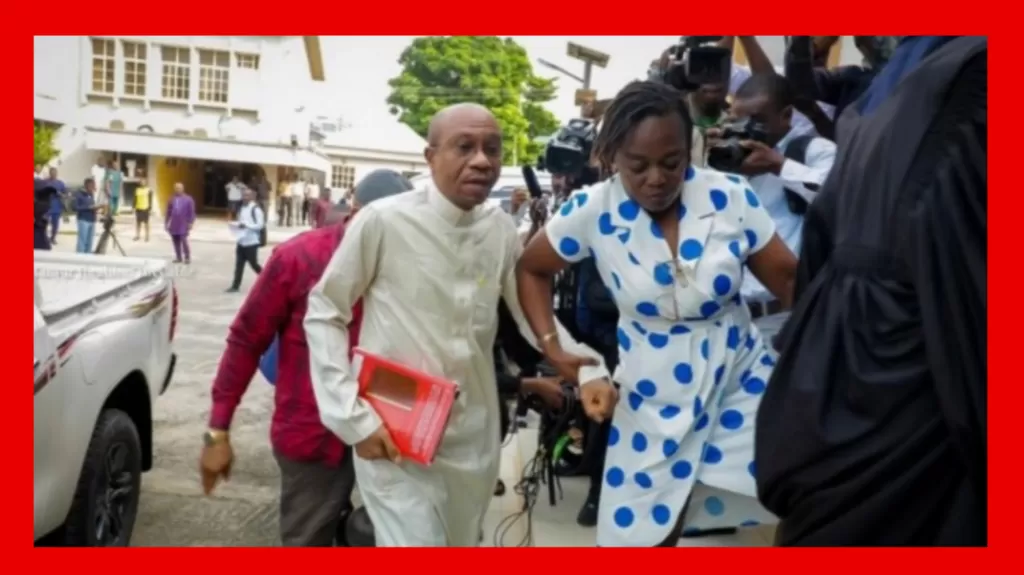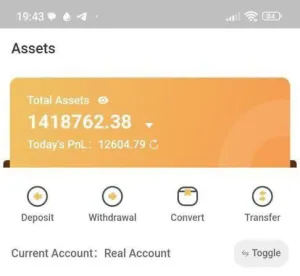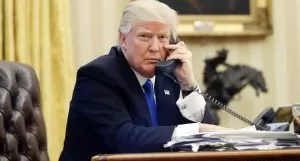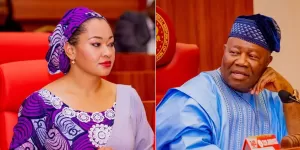EFCC Files Fresh Charges Against Godwin Emefiele Over 753 Forfeited Housing Units

The Economic and Financial Crimes Commission (EFCC) has instituted fresh criminal charges against Godwin Emefiele, the former Governor of the Central Bank of Nigeria (CBN), in connection with the alleged unlawful acquisition of 753 housing units in a high-end estate located in Abuja. The charges, detailed in an eight-count filing, accuse Emefiele of orchestrating a complex scheme involving stealing, fraudulent property acquisition, and money laundering through the use of proxies and corporate fronts. The case, which marks a significant development in the EFCC’s ongoing investigations into Emefiele’s tenure at the CBN, has drawn widespread attention due to the scale of the alleged misconduct and the subsequent forfeiture of the properties to the federal government.
According to the EFCC, the housing units, situated at Plot 109, Cadastral Zone C09, Lokongoma, Abuja, were acquired in August 2021 through illicit means. The commission alleges that Emefiele conspired with Eric Ocheme, a fugitive currently on the run, to execute the acquisition. The properties, described as a sprawling estate, were reportedly purchased using funds derived from fraudulent activities, with Emefiele allegedly leveraging his position as CBN governor to facilitate the scheme. The EFCC claims that Emefiele controlled billions of naira in illicit proceeds, which were funneled through various proxy accounts and corporate entities to obscure their origins.
Among the specific allegations, the EFCC states that Emefiele, through his proxies, kept possession of significant sums of money, including ₦167 million in 2019 and an additional ₦1.23 billion in other transactions. These funds are said to have been used to acquire the 753 housing units, which have since been described as one of the largest single-property recoveries in the EFCC’s history. The charges further accuse Emefiele of abusing his authority to enrich himself and his associates, in violation of anti-corruption laws and regulations governing public office.
The forfeited estate has been handed over to the Federal Ministry of Housing and Urban Development following a court order, marking a significant step in the government’s efforts to recover assets allegedly acquired through corrupt practices. The EFCC has indicated that several bank officials, who are believed to have facilitated or witnessed the transactions in question, are expected to testify in the case. Their testimonies are anticipated to shed further light on the intricate financial maneuvers allegedly employed by Emefiele and his associates.
This latest legal action adds to the series of charges Emefiele has faced since his suspension as CBN governor in June 2023. His tenure, which spanned from 2014 to 2023, has been under intense scrutiny, with investigations uncovering multiple allegations of financial impropriety. The EFCC’s pursuit of this case underscores its commitment to combating high-profile corruption and ensuring accountability among public officials.
As the legal proceedings unfold, the case is expected to generate significant public and media interest, given Emefiele’s prominent role in Nigeria’s financial sector and the unprecedented scale of the property forfeiture. The EFCC has vowed to pursue all leads in the investigation, including the apprehension of Eric Ocheme, whose role in the alleged conspiracy remains a focal point. For now, the forfeited 753 housing units stand as a stark reminder of the ongoing battle against corruption in Nigeria’s public institutions.
The trial is set to proceed in the coming weeks, with the EFCC preparing to present its evidence and witnesses before a federal court. The outcome of the case could have far-reaching implications for Emefiele and the broader fight against financial crimes in Nigeria.
Note: This article is based on the information provided and does not include additional details from external sources, as per the user’s request for a full article based on the initial query.
The Economic and Financial Crimes Commission (EFCC) has instituted fresh criminal charges against Godwin Emefiele, the former Governor of the Central Bank of Nigeria (CBN), in connection with the alleged unlawful acquisition of 753 housing units in a high-end estate located in Abuja. The charges, detailed in an eight-count filing, accuse Emefiele of orchestrating a complex scheme involving stealing, fraudulent property acquisition, and money laundering through the use of proxies and corporate fronts. The case, which marks a significant development in the EFCC’s ongoing investigations into Emefiele’s tenure at the CBN, has drawn widespread attention due to the scale of the alleged misconduct and the subsequent forfeiture of the properties to the federal government.
According to the EFCC, the housing units, situated at Plot 109, Cadastral Zone C09, Lokongoma, Abuja, were acquired in August 2021 through illicit means. The commission alleges that Emefiele conspired with Eric Ocheme, a fugitive currently on the run, to execute the acquisition. The properties, described as a sprawling estate, were reportedly purchased using funds derived from fraudulent activities, with Emefiele allegedly leveraging his position as CBN governor to facilitate the scheme. The EFCC claims that Emefiele controlled billions of naira in illicit proceeds, which were funneled through various proxy accounts and corporate entities to obscure their origins.
Among the specific allegations, the EFCC states that Emefiele, through his proxies, kept possession of significant sums of money, including ₦167 million in 2019 and an additional ₦1.23 billion in other transactions. These funds are said to have been used to acquire the 753 housing units, which have since been described as one of the largest single-property recoveries in the EFCC’s history. The charges further accuse Emefiele of abusing his authority to enrich himself and his associates, in violation of anti-corruption laws and regulations governing public office.
The forfeited estate has been handed over to the Federal Ministry of Housing and Urban Development following a court order, marking a significant step in the government’s efforts to recover assets allegedly acquired through corrupt practices. The EFCC has indicated that several bank officials, who are believed to have facilitated or witnessed the transactions in question, are expected to testify in the case. Their testimonies are anticipated to shed further light on the intricate financial maneuvers allegedly employed by Emefiele and his associates.
This latest legal action adds to the series of charges Emefiele has faced since his suspension as CBN governor in June 2023. His tenure, which spanned from 2014 to 2023, has been under intense scrutiny, with investigations uncovering multiple allegations of financial impropriety. The EFCC’s pursuit of this case underscores its commitment to combating high-profile corruption and ensuring accountability among public officials.
As the legal proceedings unfold, the case is expected to generate significant public and media interest, given Emefiele’s prominent role in Nigeria’s financial sector and the unprecedented scale of the property forfeiture. The EFCC has vowed to pursue all leads in the investigation, including the apprehension of Eric Ocheme, whose role in the alleged conspiracy remains a focal point. For now, the forfeited 753 housing units stand as a stark reminder of the ongoing battle against corruption in Nigeria’s public institutions.
The trial is set to proceed in the coming weeks, with the EFCC preparing to present its evidence and witnesses before a federal court. The outcome of the case could have far-reaching implications for Emefiele and the broader fight against financial crimes in Nigeria.






